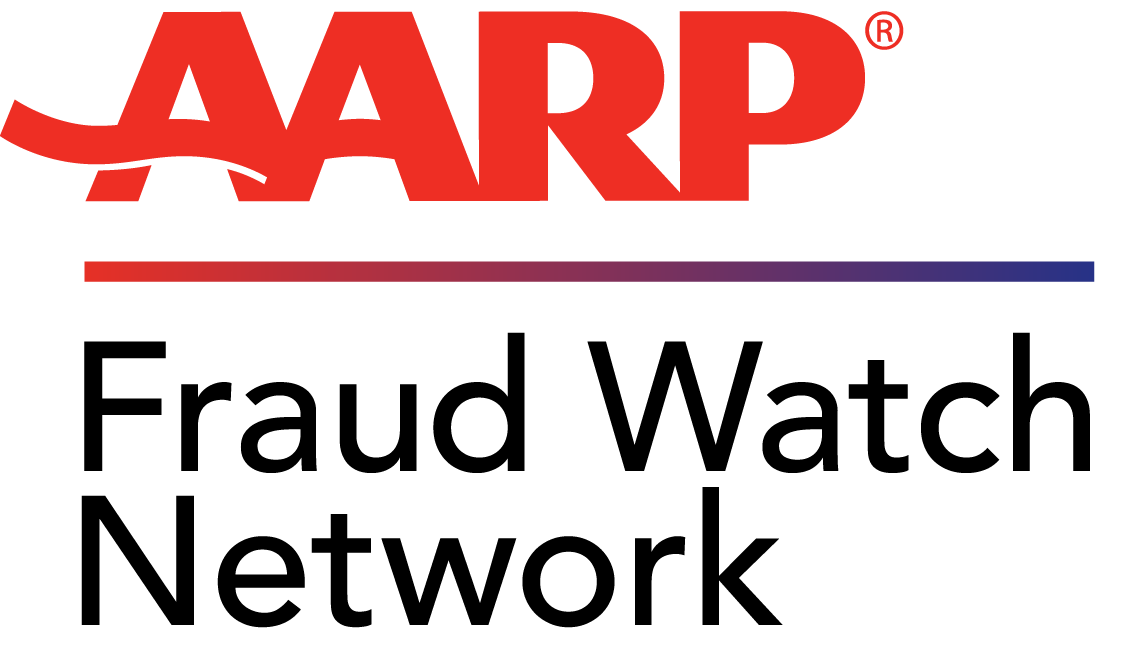AARP Hearing Center

Did you know that someone’s identity gets stolen every two seconds? The AARP Fraud Watch Network provides you with tips and resources to help you spot and avoid identity theft and fraud so you can protect yourself and your family. Our watchdog alerts will keep you up to date on con artists’ latest tricks. It’s free of charge for everyone: AARP members, non-members, and people of all ages.
The AARP Fraud Watch Network is:
- An Educator: Get real-time alerts about the latest scams, tips on how to spot them, and the inside scoop on how con artists think so you can outsmart them before they strike.
- A Watchdog: Our nationwide scam tracking map gives you access to a network of people who've spotted scams and the opportunity to pass along your own experiences, so together we can beat con artists at their own game.
- A Resource: Get connected to a real live person trained in how to avoid fraud and advise you if you or a loved one has been scammed by calling our fraud hotline or attending a forum in your community.
- Free for Everyone: Anyone, of any age, can access our resources at no cost.
SCAM ALERT #1:

Getting a request to donate to a charity? Before you give, make sure your hard-earned money is going to the intended cause. Unfortunately, con artists will try to take advantage of your good nature and pressure you to make contributions to their scam charities. Before you donate, first follow these tips: Watch out for charities with names that sound similar to well-known organizations. Never give payment information to an unsolicited caller or email. Do not pay in cash—donate by credit card or check made payable to the charity. Do your research by contacting your state’s charity regulator or consulting a charity rating organization such as charitynavigator.org. Don’t feel bad about saying “no” to charitable requests you are not comfortable with.
SCAM ALERT #2:

Jury duty scams are one of the most common and tricky variations of impostor scams out there. Typically, these scams begin with a phone call claiming you failed to report for jury duty and that a warrant is out for your arrest. The scammer might ask you for personal information, such as your Social Security number, to verify your identity. Additionally, the scammer might ask you to pay a fine via wire transfer, gift card or credit card to avoid arrest. Remember that real U.S. court officials and law enforcement offices will not call you and ask for personal information, request money to pay a fine, nor will they threaten you with immediate arrest. Courts typically communicate by mail. If you have any doubt about the correspondence you received from your county courthouse, independently research the phone number and call to verify it came from them.
SCAM ALERT #3:

Social Media Scams
Social media sites like Facebook, Twitter and Instagram provide a convenient way to connect with friends and family, but scammers also use these platforms to find victims. Scammers often create fake profiles and pretend to either be someone you know, someone you want to know or an entity you trust. The following are some red flags that you might be targeted by a scammer on a social media platform: You receive a friend/follow request from someone you are already connected with. You are informed about an opportunity to receive a grant, sweepstakes or prize. You are asked to send money to receive money. You are notified that someone is in an emergency situation and they need your help right away. Only engage with people on social media platforms who you know. Make sure you use privacy settings to ensure only people who you know and trust can view your profile.
SCAM ALERT #4:

When making a phone call to an organization you know and trust, have you ever been greeted by an automatic recording that congratulates you for being selected to win a free prize or take a survey? We know to be suspicious of unwanted calls from scammers who claim we’ve won something, but what about when we make the call ourselves? Unfortunately, scammers purchase series’ of phone numbers that closely resemble the phone numbers of legitimate businesses. Scammers use these numbers to make people think they’ve reached the organization they were intending to, when in fact they’ve reached a scammer. Case in point -- scammers currently own two numbers close to AARP’s toll-free number. To reach AARP, dial 1-888-687-2277.
Never provide your financial information to someone who claims you’ve qualified for a “free” product, service or prize. If you encounter this situation, hang up the phone, check the number you intended to dial, and try dialing again. Always double-check the area code and full phone number before you dial, as one slip of the finger can result in a costly experience.
Be a fraud fighter! If you can spot a scam, you can stop a scam. Report scams to local law enforcement. Contact the AARP Fraud Watch Network at www.aarp.org/fraudwatchnetwork for more information on fraud prevention.































































